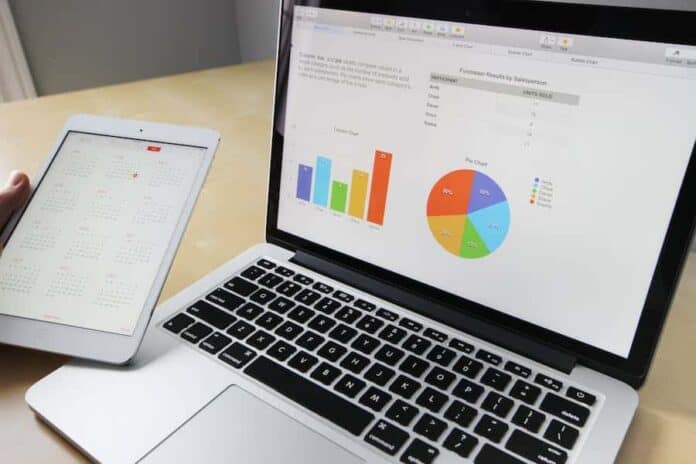The finance and technology landscapes are evolving rapidly. Artificial intelligence (AI) is being used more and more to help with governance, risk management, and compliance (GRC). GRC helps companies follow laws and avoid risks. Last year, investments in AI for finance reached $20 billion globally according to a 2023 report. AI is playing a transformative role in reshaping the functioning of the finance sector.
AI and Its Uses in Finance?
AI involves creating intelligent computer programs. The computer programs can analyze data and make decisions themselves. They can also learn patterns from data. AI programs are employed in a wide array of tasks in today’s context. Like understanding speech, identifying images, detecting fraud, and even driving cars. AI can process data much faster than humans. It helps humans focus on other important things. Banks and financial companies have a lot of complex rules. They need to watch out for risks and obey laws that change often. Doing all this by hand takes many employees and is slow. AI programs can help analyze information and enforce the rules.
Catching Financial Crime
Criminals attempt to steal money or conceal transactions that violate laws. AI algorithms running on the GRC platform can analyze many transactions at once to catch problems. The AI learns to identify patterns in normal transactions. Then it flags anything strange for humans to review. Last year, an AI system at a large European bank identified 60% more cases of money laundering than their team could catch manually. The AI enhances its detection skills over time as well.
Reviewing Documents
Banks must know their customers and watch for risky ones. However, reviewing paperwork for every customer is a time-consuming process. AI can scan application forms and documents much faster. It checks for missing details or suspicious information. An AI program can read 500 pages of legal documents in one hour. A person would need weeks to properly review that much material. Additionally, the AI makes documents searchable for quick reference. So people can quickly confirm details instead of re-reading everything.
Predicting Outcomes
Understanding risk lets companies prepare and follow the rules. But factors like the economy can be hard to predict. AI programs can analyze historical trends and news articles. Then they make thousands of projections to foresee outcomes. These AI predictions assist in guiding business decisions. Firms can strategically plan investments, modify rules, or allocate funds to mitigate potential losses. For example, AI predicted COVID’s impacts on travel spending 8 weeks before lockdowns started. That gave banks time to increase reserves by billions of dollars.
Automating Processes
Repeating routine finance tasks takes time away from advising clients or spotting problems. Chatbots and AI assistants handle more basic queries and transactions now. They respond to customer emails about statements or transfer requests. This frees up human employees for more complex situations. On the company side, AI programs can code invoices, file tax forms, and run audits. They perform calculations without making errors. Last year, AI processed over $15 million in wire transfers with 99.9% accuracy for a global bank. The transfers met urgency needs and compliance rules. This saved weeks’ worth of human effort.
AI has rapidly delivered numerous benefits to the finance sector in recent years. Refer to the data below for a better understanding:
Increased Efficiency – AI handles high-volume, routine tasks faster and without fatigue. This reduces costs and frees up human talent.
- Improved Detection – AI spots more instances of fraud, money laundering, errors, and other issues than manual methods alone. This reduction in financial crime also leads to reduced losses.
- Better Risk Management – By predicting outcomes and projecting different scenarios, AI gives deeper insights into risks. This allows firms to make changes to limit downsides.
- Higher Productivity – Chatbots and virtual assistants save people time on basic queries, so employees can focus on high-impact initiatives. AI also takes over mundane processes like data entry.
- More Consistent Compliance – AI consistently follows policies and regulations when assessing cases or filing paperwork. This improves audit results and avoids penalties.
Personalized Client Experiences
AI is transforming how financial firms interact with customers. Initially, chatbots were used solely for handling basic queries such as account balances. Now, AI programs can interpret complex customer needs and emotions too. They generate personalized product suggestions and financial advice for clients. An AI virtual advisor draws on data such as income, spending habits, risk tolerance, and life goals to provide tailored solutions. It can explain concepts clearly and answer follow-up questions. Over time, the AI remembers customer priorities to continue relevant dialogs. AI-powered personalized engagement builds trust and satisfaction.
New Business Insights
Making strategic plans and decisions requires perspective. Finance teams previously relied solely on historical figures. AI now uncovers forward-looking insights from data. Algorithms discern trends, conduct market research, and run profitability models automatically. This gives leadership dynamic views into challenges and opportunities. Reports may highlight economic shifts affecting planned expansions or compare performance metrics across regions. Interactive dashboards even allow customized what-if analysis on the fly. While AI doesn’t replace human judgment, it provides the meaningful intelligence needed to make informed decisions.
Operational Efficiency Gains
Behind the scenes, banks have complex workflows spanning systems, employees, and physical infrastructure. Optimizing these for maximum throughput takes enormous effort. AI algorithms can automatically detect and eliminate process bottlenecks, regardless of their origin. They inventory all assets, gauge capacity utilization, and simulate process changes at scale. Actionable redesign recommendations follow to smooth operations. As volumes or mixes change, AI models adapt routing logic, staffing levels, and resource allocation accordingly. Continuous optimization guided by AI results in faster outcomes, reduced overheads, and less waste across finance functions.
The Future with AI
Finance has adopted AI faster than many industries. The global market for AI in finance could potentially increase tenfold in the next five years. As AI gets more advanced, companies will rely on it even more for GRC and other areas. Chatbots may turn into virtual finance assistants that can answer any client question. AI fraud investigators could halt crimes as they start unfolding. Additionally, AI predictions may guide investments in emerging areas such as renewable energy. The future of finance hinges on collaboration between humans and AI. Together they can drive growth while managing risks.
Frequently Asked Questions
How does AI help with fraud?
AI analyzes large volumes of customer transactions to detect patterns typical of financial crimes. By flagging odd account flows early, AI aids fraud investigation teams in stopping more schemes before funds disappear.
Is AI used for investment picks?
Increasingly yes – AI scans news, earnings reports, macroeconomic trends and more to predict how stocks or other assets might perform. It generates trading suggestions or portfolio adjustments for advisors to review. But no models are perfect, so human oversight is still needed against market surprises.
Do finance chatbots have access to my account?
Chatbots only interact with basic personal data provided to answer questions. To ensure security, they cannot directly access backend financial systems or transaction records without human approval. Confidential data stays protected.
How can AI predict future risk better than finance experts?
Even the best experts have limited perspectives shaped by their past experiences. AI can impartially analyze vastly more economic data from multiple periods and countries. It runs thousands of projections to surface patterns human intuition might miss. The AI supplies an outside opinion to complement human insights.












